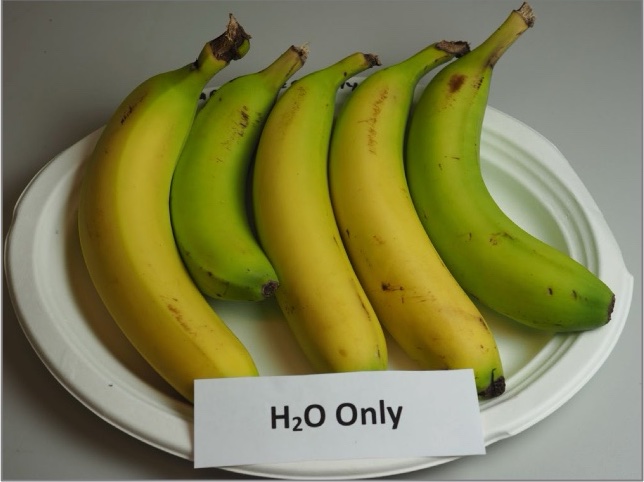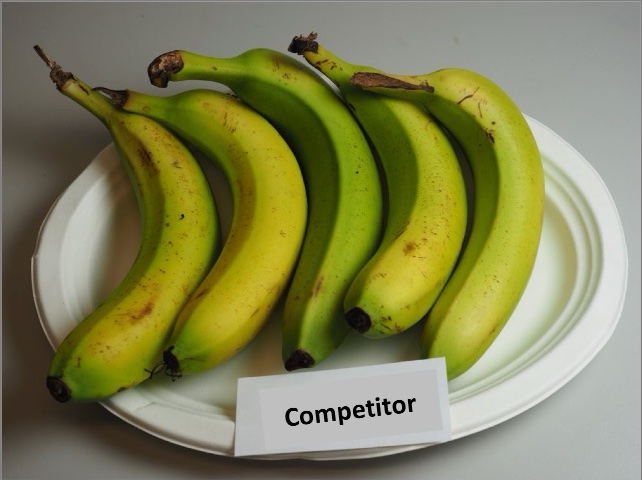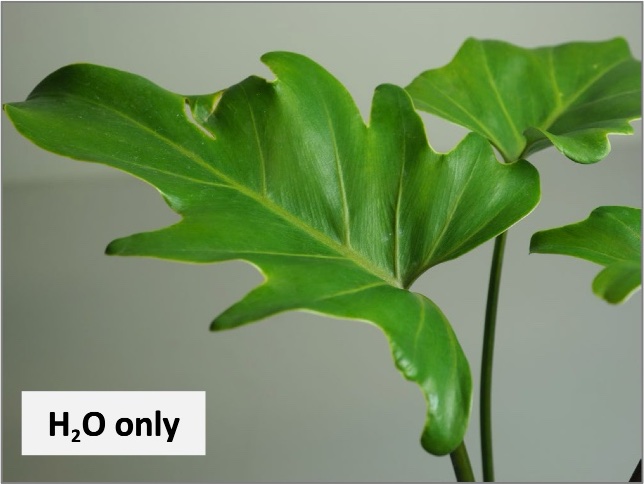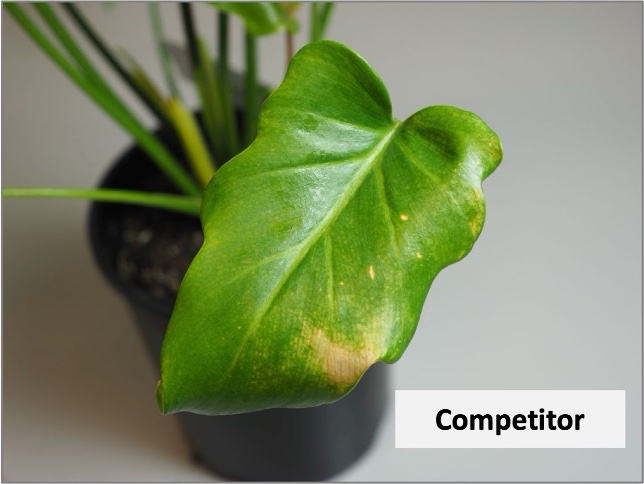
Crop Safety With Biopest® Under Hot & Humid Conditions
| Version 1 | Date November 2023 |
The combination of hot and humid conditions during, and immediately after application of paraffinic crop oils create conditions that are conducive for spotting or burning of treated fruit.
This occurs when high humidity delays evaporation and concentrated droplets of insufficiently refined oil remain on the surface of the fruit for long enough to cause a symptom.
This is particularly true for soft skin fruits like bananas.
The purpose of the study was to demonstrate the crop safety of Biopest; attributed to its higher degree of refinement vs a seemingly similar competitor who also claims unsulphonated residues no less than 98%, when applied to a representative range of labelled crop types.
In the trial, a range of crops including banana, avocado, pear, tomato, smooth-skin lemon and an ornamental plant were treated with Biopest and similar competitor at label rates. Droplet size for the application was in the medium to coarse range. Immediately after application, the treated substrates were transferred to a growth chamber preconditioned to 32oC and 90% humidity, and left for three hours, after which they were removed to an ambient temperature location.
24 Hours after application the fruit were assessed under magnification and the oil-induced symptoms rated on a severity scale from 0 to 5, and then placed back into the growth chamber to simulate an orchard situation where the crop is exposed to two 3-hour periods of heat and high humidity for two consecutive days.
After the second exposure in the growth chamber, the treated substrates were again removed to an ambient temperature location and assessed for crop symptoms at 48 hours after application.
Symptoms on the test substrates were rated according to the scale below

Visible symptoms varied according to the test substrate


Close-up image of Paraffinic Oil symptoms on a banana peel caused by hot & humid conditions during application
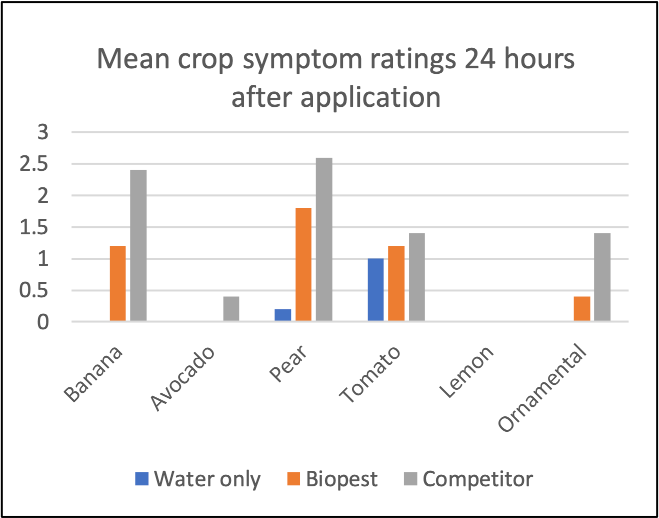
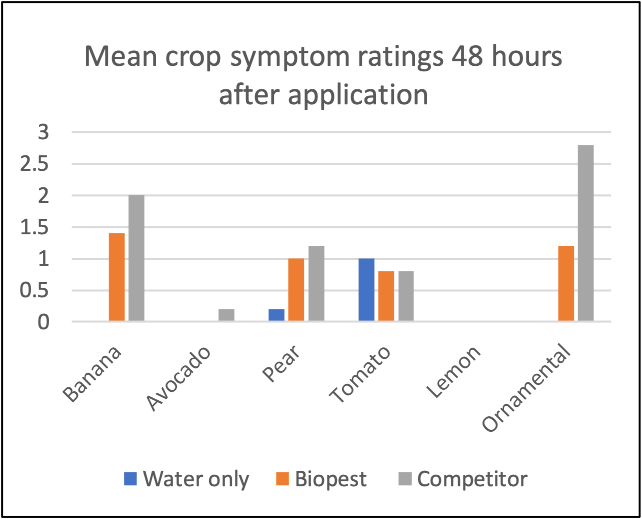
Mean crop safety ratings for various treatments on six test substrates 24 hours after application. Numbers followed by the same are letter are not significantly different at P < .05.

Of the two paraffinic oil products compared, Biopest caused lesser symptoms when subjected to hot, humid tropical conditions immediately after application – none of which would cause a quality downgrade.
Avocado and lemon were the least sensitive to paraffinic oil sprays in this study, while banana, pear and the ornamental plant Philodendron xanadu were the most sensitive. For these crops, the symptoms caused by the competitor product had an average rating higher than 2 and would have incurred quality downgrades based on appearance. The symptoms were very noticeable in bananas and the ornamental plant, in particular.
As weather events become more severe and unpredictable due to climate change, be sure to use Biopest as the safer option when hot & humid conditions may occur without warning
EXAMPLES OF DIFFERENCES BETWEEN UNTREATED (Water only) AND PARAFFINIC OIL-INDUCED SYMPTOMS
